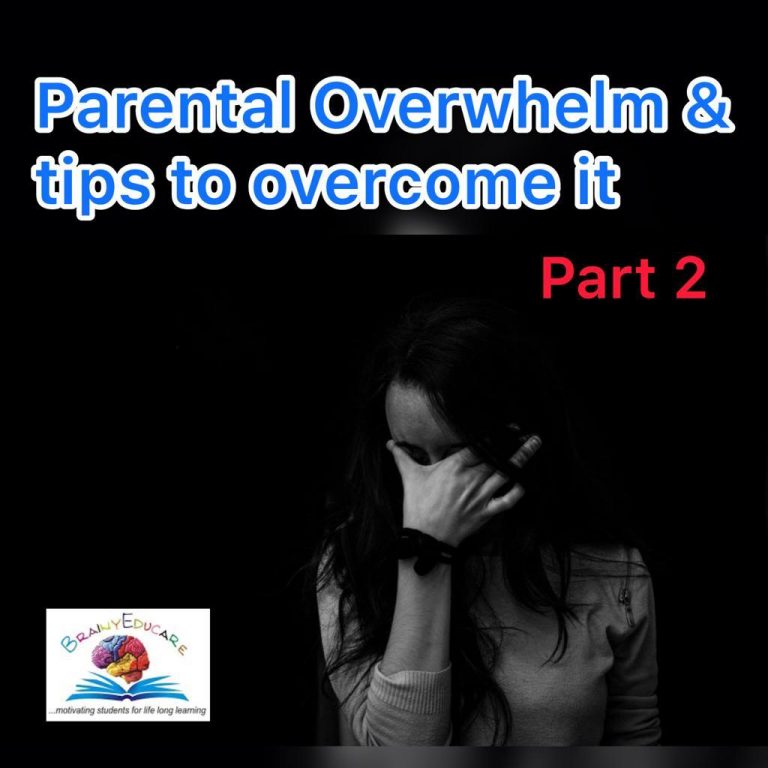
Imagine your child walks up to you and says “I have a boyfriend (or girlfriend).” What would you do?
No doubt, this is one of the toughest moments you will face as a parent. The statement itself can destabilize you and cause an emotional havoc.
How would you respond?
Let’s consider the 3 most common styles of response.
- Ignoring the child. After hearing the statement from a child, some parents pay no attention at all; and pretend like it never happened. Such parent assumes the child is just playing around – after all, “she’s just a kid”. Total ignorance of the child’s statement not only shows the parent’s insensitivity, but also provides consent to the child. Silence, especially for kids, means approval.
- Being indifferent. This kind of parent hears the child, pays attention, but shrugs it off hoping that anyhow the child handles it is fine. Children were not born with a knowledge of romantic relationships, so why would anyone expect that they will handle it just fine? Often, parents that fall into this category are 1) scared of talking about boyfriend-girlfriend issues 2) don’t know how to respond or 3) are just nonchalant.
- Being contemptuous. These are the what-did-you-just-say kind of parent. They respond to the child by hurling abusive words, scorning, or even hitting the child. While this may show your disapproval and hatred for the action, it does nothing to help the child do what’s right. In fact, it may do the opposite.
These styles are often automatic, as a result of culturally-established parenting beliefs. But in case you haven’t found out, most of these beliefs turn out to be ineffective.
So, how should you respond?
Wait! Check your Mindset.

When your child informs you about a boyfriend or girlfriend relationship, you need to feel very privileged. Why?
Children in this century develop a sense of independence from a very young age. Hence, they don’t find a need to inform you about their decisions or resolutions.
Your child telling you about a romantic partner already shows the level of trust and safety they find in you; so, you need to appreciate it.
Once you understand the situation, you can then move on to the next stage of the conversation.
The 7-Step Process

The following, lists out the steps you need to respond effectively to the situation.
- Pay attention and do not freak out. Try as much as you can to keep calm. Leave whatever you are doing at that moment and pay total attention. You want to ensure that you make the child feel as comfortable as possible, as this will set the stage for the conversation that will ensue.
- Ask the Gateway Questions. “What did you just say?”, is not the first question you want to ask your child. This question itself will irritate a child and make him or her withdraw from the conversation. Child Psychologist, Eniola Olajobi, recommends that you begin by asking the child “what do you mean?” – softly. This question shows that you want to talk more about it. You may notice that the child holds back. At that point, say “can you explain more to me?”
- Listen. Don’t jump into the conversation. Let your child do the talking while you calmly listen. And remember, the intent behind your listening is not to reply, but to understand why your child feels that way.
- Don’t give advice, ask more questions. Not all parents are presented the opportunity to handle this kind of situation, so you shouldn’t blow it. After asking the gateway question your child may stop intermittently, hoping that you respond. At such stages, do not advice. Keep asking questions like “what do you think that kind of relationship entails?” “who is a boyfriend or girlfriend?” “what will you be doing with this person?” “why is this person different from your normal friends?” Also, you need to ensure that care is taken while asking the questions – a coarse voice will send the child away.
- Empathize until the child feels safe and vulnerable. Afterasking the gateway question that will unlock the entire conversation, you must ensure you do everything possible to make the child feel vulnerable. This can be done by empathizing with the child. Smile when the child smiles – even if you don’t find it funny – and show a sad expression whenever the child does. This will help keep the conversation smooth and make the child vulnerable. A child that becomes vulnerable while conversing with you, will express their sincere feelings and allow you to influence their decisions afterwards.
- Give your recommendations with cogent/concrete and unambiguous reasons. At this point, your child feels safe and relaxed. The child has been given ample time to voice their concern and is now open to hear you. More than anything, the point of your explanation is to empower your child to make an informed decision and not to tell what to do. Your explanation should be clear enough to make the child understand that having a boyfriend or girlfriend is not the right thing to do. Explain the dangers involved and what he or she would gain by avoiding it.
- Continue to have similar discussions. One conversation will not win over the child’s heart forever. You must ensure that you keep having discussions surrounding the same topic. Ask questions once in a while about the boyfriend or girlfriend; this will remind your child of your previous discussions.
Some Parting Words

Teenagers will always have the boyfriend-and-girlfriend issue, as this is due to puberty and social awareness.
It is your duty as a parent to ensure that you help your child overcome the negativities that come with it.
For your child to feel safe about holding such discussion, there has to be a height of trust that must have been established.
If you feel that you haven’t created an environment where your child will feel safe to hold such discussion, then it is pertinent that you create that first.
If anything should be stressed, it is the fact that teenagers will often find it hard to discuss such issues. Even when they do, it may just be a way of informing you rather than seeking your consent.
Don’t destroy the chance you have to make the life of your kids a better one. Hold them to a higher standard and remember that kids are apt to live up to what you believe of them.









0 thoughts on “7 Quick Steps to handle your child’s Boyfriend or Girlfriend Issues (without arguments!)”
Were you aware that over 60% of medication users experience serious drug mistakes because of insufficient information?
Your health requires constant attention. All treatment options you make directly impacts your quality of life. Staying educated about your prescriptions should be mandatory for optimal health outcomes.
Your health depends on more than taking pills. Every medication interacts with your body’s chemistry in specific ways.
Consider these critical facts:
1. Mixing certain drugs can cause fatal reactions
2. Even common pain relievers have strict usage limits
3. Altering dosages undermines therapy
To protect yourself, always:
✓ Check compatibility via medical databases
✓ Study labels completely prior to using medical treatment
✓ Speak with specialists about potential side effects
___________________________________
For reliable pharmaceutical advice, visit:
https://members2.boardhost.com/businessbooks6/msg/1729665100.html
Your comment is awaiting moderation.